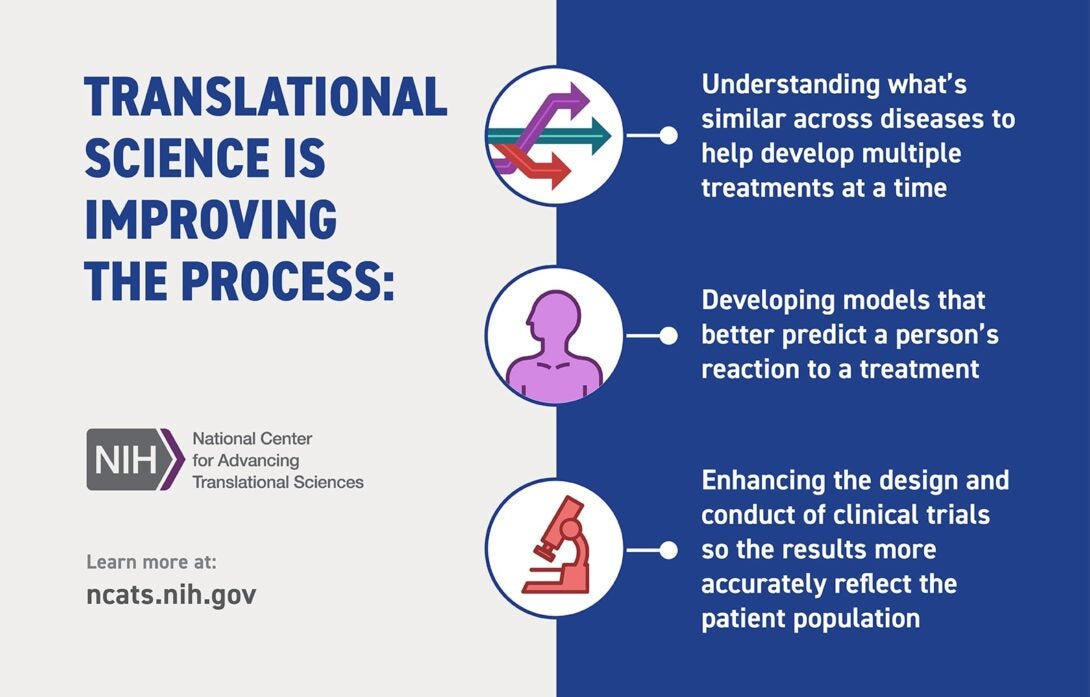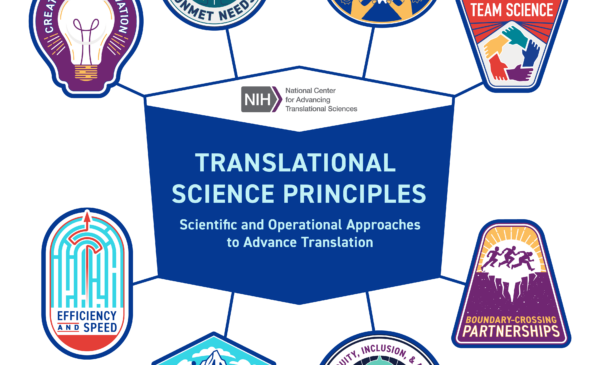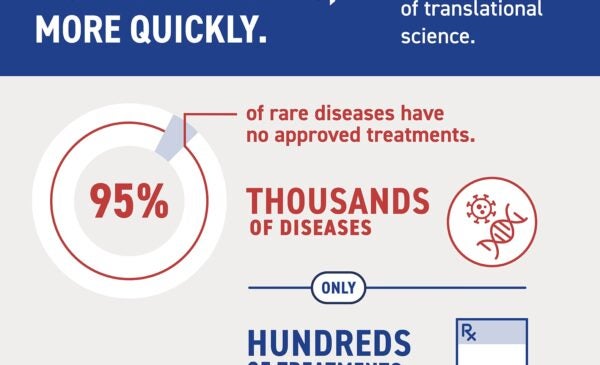Principles of Translational Science
What is Translational Science?

The National Center for Advancing Translational Science (NCATS) at NIH defines:
- ‘Translation’ as the process of turning observations in the laboratory, clinic and community into interventions that improve the health of individuals and communities – from diagnostics, preventions, and treatments to medical procedures and behavioral changes.
- ‘Translational research’ as the endeavor to traverse a particular step of the translational process for a particular target or disease.
- ‘Translational science’ is the field of investigation focused on understanding the scientific and operational principles underlying each step of the translational process.
Translational science is “disease universal” because it focuses on the scientific and operational bottlenecks that are common to translational research for most or all diseases. These obstacles impede and prolong the process of identifying effective new treatments.
Translational science projects focus on (1) overcoming roadblocks to enhance the efficiency and speed translational research, and (2) the generalizability of solutions across a range of diseases and conditions.
Learn more about TRANSLATIONAL SCIENCE
Frequently Asked Questions
Answer
Whereas translational research focuses on the specific case of a target or disease, translational science is focused on the general case that applies to many targets or diseases.
Translational science is a disease-agnostic approach to understanding common causes of inefficiency and failure in research. It seeks to develop innovative solutions to enhance the efficiency and effectiveness of all translational research and ultimately benefit research across a range of diseases and conditions.
Answer
Translational science aims to address roadblocks such as:
- incorrect predictions of the toxicity or efficacy of new drugs,
- lack of data interoperability and challenges to data acquisition, integrity and analysis,
- translational barrier from animal models to human trials or between adult and pediatric patient populations,
- ineffective recruitment and retention, including of underserved populations.
Many of these barriers are the same across targets, diseases, and therapeutic areas. Therefore, advances in translational science will increase the efficiency and effectiveness of translational research across multiple domains to enhance health, lengthen life, and reduce the burdens of illness and disability.
Answer
- Develop recruitment and retention best practices to improve diversity of participants in trials.
- Address health disparities and ensure that research benefits all populations, including underserved communities.
- Understanding similarities across diseases to help develop multiple treatments at one time.
- Develop appropriate metrics and benchmarks to assess the success and impact of the full translational research process.
- Strengthen and maintain expertise in regulatory affairs to navigate the complex regulatory landscape governing research, including the conduct of clinical trials and ethical considerations.
- Develop platforms and infrastructure for researchers to share data, findings, and expertise, fostering collaborative projects and knowledge exchange.
- Foster collaborations with industry partners, pharmaceutical companies, and other external stakeholders to enhance the translation of research findings into practical applications.
- Advocate for policies and funding opportunities that support translational science at local, regional, and national levels. Engage in policy discussions to create an environment conducive to research.
Examples of Translational Science Projects
NOT Translational Science
- Testing a compound that was efficacious in an animal model of disease in a human model of disease
- Evaluating the toxicity of a newly developed compound to treat diabetic foot
- Identifying early biomarkers of Alzheimer’s Disease
- Recruitment of historically underrepresented groups into a clinical trial for prostate cancer
- Generating a research database of patients with Sickle Cell Disease in Chicago
Translational Science
- Developing models/assays that can be better predictors of efficacy in humans than current cell/animal models
- Development of new assay types based on human cells that can identify potential toxicities more accurately and efficiently than current animal testing methods
- Development of framework/models to identify biomarkers that change early in the course of intervention to gauge intervention efficacy
- Systematically studying barriers to enrollment of historically underrepresented groups in clinical trials
- Developing systems to merge clinical datasets from different sources accurately and efficiently

